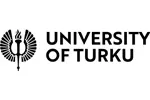We're moving! This site will be relocating to goingto.university in 2026. Please update your bookmarks to the new address.


Finland
University of Turku| The award | How you will study | Study duration | Course start | Domestic course fees | International course fees |
|---|---|---|---|---|---|
| MSci | Full-time | 2 years | September | - | EUR 12000 per year |
The Master's Degree Programme in Biomedical Sciences — Biomedical Imaging specialisation track trains professionals with thorough theoretical understanding and practical skills in diverse imaging methods and technologies. This programme is taught at the University of Turku in Finland.
The studies in Biomedical Imaging provide you with strong knowledge on either cellular biology, anatomy and physiology, nanomedicine or biophysics, depending on the area of your specialisation. You will study in a highly international environment and gain excellent theoretical and practical skills in a wide range of imaging techniques and applications as well as in image analysis.
In addition, the courses cover light microscopy, advanced fluorescence techniques, super-resolution imaging techniques, PET, electron microscopy and atomic force microscopy. An understanding of the use of multimedia in a scientific context and excellent academic writing skills are emphasised. The interdisciplinary curriculum provides you with a broad spectrum of state-of-the-art knowledge in biomedical imaging related to many different areas in cell biology and biomedicine.
The interdisciplinary curriculum provides you with broad knowledge on biomedical imaging related to many areas of biomedicine and life sciences.The Biomedical Imaging specialisation track aims to train future imaging and image analysis experts to meet the increasing demand in the fields of basic and medical research as well as the high demand for imaging core facility personnel.
The Programme provides excellent possibilities for a career in life sciences. For example, you can:
Free for citizens of EU/EEA countries or Switzerland. For citizens of non-EU/EEA countries €12,000/academic year.
Read more about the tuition fees and scholarships at the University of Turku here here.
General Requirement
You are an eligible applicant for Master’s-level studies if
Language Requirements
Applicants must have excellent English language skills and a certificate that proves those skills. You can indicate your language skills by taking one of the internationally recognized English language tests.
Applicants must reach the minimum required test results to be considered eligible to the University of Turku. No exceptions will be made. Read more about the language requirements here.
Below are some suggested courses at other providers that you may also be interested in:
Leader Communication in a Cross Cultural & Changing World Short Course
ESSCA School of Management – Online Programs
Find out moreScreenwriting BA (Hons), Cert HE
Catalyst - Institute for Creative Arts and Technology
Find out moreTheatre & Performance Design BA (Hons)
The Liverpool Institute for Performing Arts (LIPA)
Find out moreIf you do not meet the entry requirements for this course then consider one of these postgraduate preparation courses from another institution:
Graduate Diploma of Engineering (Electrical Systems)
Engineering Institute of Technology
Find out moreThere are 28 other courses listed from University of Turku. A selection of these are displayed below:
Bachelor´s and Master´s Degree Programme in Primary Teacher Education MA Open
University of Turku
Find out moreBachelor's Degree Programme in Early Childhood Teacher Education BA
University of Turku
Find out moreMaster's Degree Programme in Biomedical Sciences: Biomedical Imaging MSci
University of Turku
Find out moreMaster's Degree Programme in Biosciences: Evolutionary Biology MSc
University of Turku
Find out moreMaster's Degree Programme in Biosciences: Molecular Systems Biology MSc
University of Turku
Find out moreJoin the StudyLink email list and never miss a chance to turn your study abroad dreams into reality!
